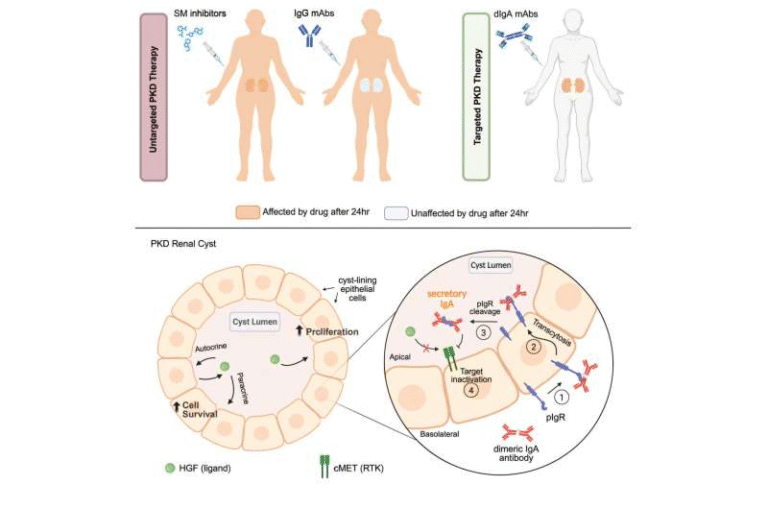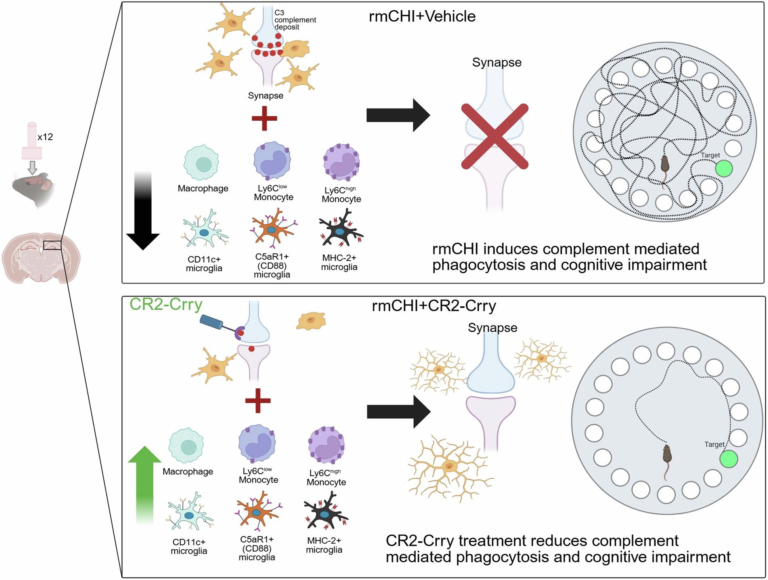Weight-Loss Surgery Shows Stronger Long-Term Benefits Than GLP-1 Drugs, Cleveland Clinic Study Finds

A major new study from the Cleveland Clinic has shed light on an important question in obesity and diabetes care: which works better in the long run, weight-loss surgery or GLP-1 receptor agonist drugs (the class of medicines that includes semaglutide and tirzepatide)? The results, published in Nature Medicine in September 2025, show that metabolic surgery outperforms these widely prescribed medications when it comes to survival, blood sugar control, and preventing long-term complications.
This is not a small or short-term study. Researchers followed 3,932 adults with both obesity and type 2 diabetes over a period of up to 10 years, making it one of the most comprehensive comparisons of its kind.
Study Overview
The study, known as the M6 study (Macrovascular and Microvascular Morbidity and Mortality after Metabolic Surgery versus Medicines), was conducted at the Cleveland Clinic.
- Participants: 3,932 adults with type 2 diabetes and obesity
- Treatment groups:
- 1,657 underwent bariatric/metabolic surgery (procedures like gastric bypass or sleeve gastrectomy)
- 2,275 were treated with GLP-1 receptor agonist drugs such as liraglutide, dulaglutide, exenatide, semaglutide, and tirzepatide
- Follow-up period: up to 10 years
- Study design: Observational, not randomized, meaning patients were not assigned to groups at random but were tracked based on their chosen treatment
Despite being observational, the findings are striking and consistent across multiple health outcomes.
Major Health Outcomes
Survival
Patients who underwent surgery had a 32% lower risk of death compared to those who relied on GLP-1 drugs. This is one of the most important findings, highlighting a clear survival advantage for surgery.
Cardiovascular Health
When it came to major cardiovascular events such as heart attack, heart failure, or stroke, the surgery group had a 35% lower risk than the medication group.
Kidney Health
The risk of developing severe kidney disease was cut by 47% in the surgery group. Since kidney failure is one of the most serious complications of diabetes, this is a very meaningful difference.
Eye Health
Diabetes often leads to retinopathy, a type of eye damage that can result in vision loss. The study found that patients who had surgery had a 54% lower risk of developing diabetes-related eye damage compared to those on GLP-1 drugs.
Weight Loss and Blood Sugar Control
Beyond survival and complication risks, the study also compared weight loss and diabetes management.
- Weight Loss:
- Surgery patients lost 21.6% of their body weight over 10 years
- GLP-1 patients lost 6.8%
- Blood Sugar (HbA1c reduction):
- Surgery group improved by –0.86%
- GLP-1 group improved by –0.23%
Additionally, people who had surgery required fewer prescriptions for diabetes, blood pressure, and cholesterol management, showing that their conditions were better controlled long-term.
Why Surgery May Outperform GLP-1 Drugs
While both treatments target weight and metabolism, they work differently.
- Surgery directly alters the digestive system, changing hormone signals, appetite regulation, and how the body processes nutrients. These effects are durable, lasting for years.
- GLP-1 receptor agonists mimic natural gut hormones that regulate blood sugar and appetite. They are very effective in controlled clinical trials, but in real-world use, many patients stop taking them due to side effects, costs, or supply issues.
This difference in durability may explain why the surgery group achieved greater long-term benefits.
Study Limitations
The researchers emphasized some limitations:
- The study was observational, not a randomized controlled trial. This means there could be differences in the types of patients who chose surgery versus medication that influenced outcomes.
- The drug group included older GLP-1 drugs as well as newer ones. The study did not exclusively focus on the latest and most potent therapies like semaglutide and tirzepatide, which may have narrowed the gap.
- Real-world use of GLP-1 drugs often involves lower adherence, which may not reflect their full potential under ideal conditions.
Even with these caveats, the differences observed were large enough to support the idea that surgery has unique long-term advantages.
Broader Context: Other Studies and Real-World Evidence
This isn’t the first time surgery has come out ahead.
- A real-world study presented at the 2025 American Society for Metabolic and Bariatric Surgery (ASMBS) meeting compared GLP-1 drugs and bariatric surgery over 2 years. Patients who had gastric bypass or sleeve gastrectomy lost around 24%–26.5% of their body weight, while GLP-1 users lost 5–7%.
- Another insurance claims study published in JAMA Surgery found that bariatric surgery patients not only lost more weight but also had lower overall healthcare costs compared to GLP-1 patients, saving around $11,689 over two years.
- Real-world data consistently shows that many patients discontinue GLP-1 therapy within a year, which further limits its effectiveness.
Why GLP-1 Drugs Still Matter
It’s important to note that this study does not mean GLP-1 drugs are ineffective. They have been shown in multiple large trials to reduce cardiovascular risk, improve kidney outcomes, and help with weight loss.
In fact, these medications are often considered a breakthrough for people who are not candidates for surgery, or who prefer a non-surgical approach. They also offer flexibility, since not everyone is willing or able to undergo surgery.
The challenge is that the real-world results don’t always match the impressive trial data, largely due to discontinuation and inconsistent use.
What This Means for Patients and Doctors
This research adds to a growing body of evidence that bariatric surgery should be considered an early and viable option for patients with obesity and type 2 diabetes, not just a last resort after other methods fail.
For patients, the choice often comes down to:
- Surgery: Offers stronger and more durable long-term benefits but requires undergoing a medical procedure with its own risks and recovery period.
- GLP-1 drugs: Highly effective in the short term, especially when adherence is high, but results may fade if treatment is discontinued.
The study suggests that if the goal is long-term survival and prevention of complications, surgery may provide the most reliable outcomes.
A Deeper Look at GLP-1 Drugs
Since GLP-1 receptor agonists are at the center of this debate, here’s a quick overview:
- How they work: They mimic a natural hormone (GLP-1) that increases insulin release, reduces glucagon (which raises blood sugar), slows gastric emptying, and reduces appetite.
- Popular examples:
- Semaglutide (Ozempic, Wegovy)
- Tirzepatide (Mounjaro, Zepbound) – technically also a GIP agonist
- Liraglutide (Victoza, Saxenda)
- Dulaglutide (Trulicity)
- Exenatide (Byetta, Bydureon)
- Benefits: Proven to lower blood sugar, support weight loss, reduce the risk of heart attacks and strokes in high-risk patients, and protect kidneys.
- Limitations: Side effects such as nausea and vomiting, high cost, supply shortages, and the need for ongoing injections. Stopping the drug often leads to weight regain.
A Deeper Look at Bariatric Surgery
Bariatric or metabolic surgery includes several procedures:
- Gastric bypass: Creates a small pouch in the stomach and reroutes part of the intestines, reducing calorie absorption and altering gut hormones.
- Sleeve gastrectomy: Removes part of the stomach, creating a smaller “sleeve” shape and changing hunger signals.
- Adjustable gastric banding: Less common today, involves placing a band around the stomach to limit intake.
- Biliopancreatic diversion with duodenal switch: More complex, less common, but results in significant weight loss.
These surgeries don’t just restrict food intake — they change the body’s hormonal and metabolic environment, often leading to remission of diabetes and improvements in blood pressure and cholesterol.
Final Thoughts
This Cleveland Clinic study adds strong evidence that surgery provides lasting advantages over GLP-1 drugs when treating obesity and type 2 diabetes. While GLP-1 therapies remain valuable and life-changing for many, especially in the short term, the data suggest that surgery offers greater protection against death, heart disease, kidney failure, and vision problems.
Future studies will likely focus on direct comparisons between surgery and the newest GLP-1 drugs in randomized settings. For now, the takeaway is clear: in many cases, surgery may still be the most powerful long-term tool for improving health and survival in people with obesity and diabetes.





